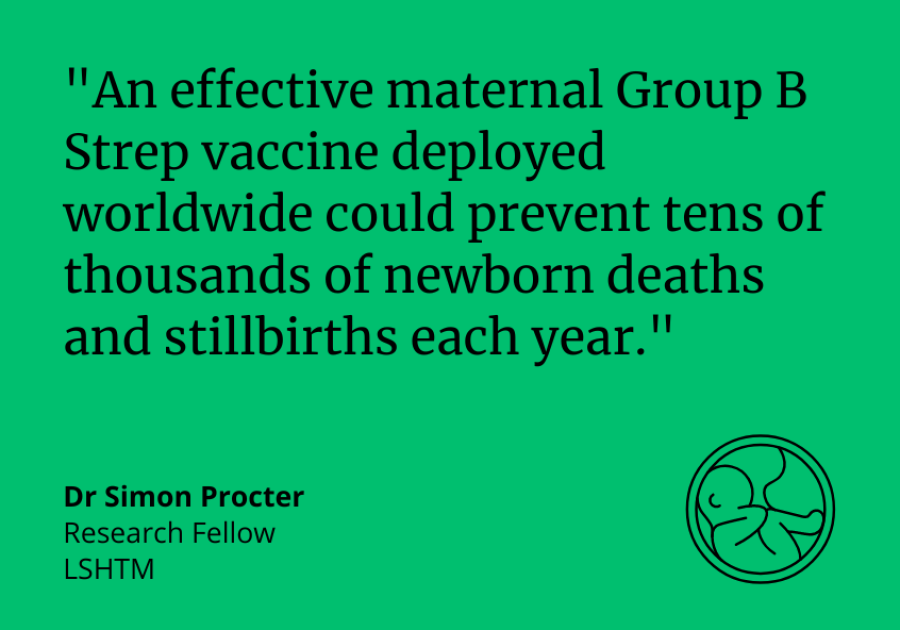Maternal Strep B vaccination could prevent "tens of thousands of newborn deaths and stillbirths"
15 March 2023 London School of Hygiene & Tropical Medicine London School of Hygiene & Tropical Medicine https://lshtm.ac.uk/themes/custom/lshtm/images/lshtm-logo-black.png
A global maternal immunisation programme for group B Streptococcus – Strep B – would save millions of dollars in healthcare costs by reducing death and disability, a team led by researchers from the London School of Hygiene & Tropical Medicine (LSHTM) has found.
However, the research, published in PLOS Medicine, suggests that without tiered pricing equitable access to life-saving vaccines would probably not be achieved.
Several Strep B vaccines are currently under development, and the research team’s assessment of the impact and value of a global vaccination programme estimates this could avert over 200,000 cases and more than 31,000 deaths, and reduce disability in children.
Strep B can infect pregnant women and their babies, causing sepsis and meningitis in newborns, and sometimes leading to death or disability. It is linked to increased risks of stillbirth and preterm births. As vaccines get closer to approval, a global economic evaluation of vaccination will inform investment decisions in further vaccine development as well as guide fair financing and pricing.
Dr Simon Procter of the London School of Hygiene & Tropical Medicine and colleagues developed a model to assess the cost-effectiveness of Group Strep B (GBS) vaccines in 140 million pregnant women in 183 countries in 2020. They used recent global estimates of the health burden of Strep B in pregnant women and their children and estimated costs to healthcare systems, calculating quality-adjusted life years lost due to infant mortality and long-term disability.
Based on the World Health Organization’s published list of preferred features for a Strep B vaccine, the team assumed that the vaccine would prevent infection in 80% of women vaccinated, and that women receiving at least four antenatal visits would get vaccinated. They assumed a cost of $50 a dose in high income countries, $15 in upper-middle income and $3.50 in low- and lower-middle income countries. Vaccination could avert 127,000 early-onset and 87,300 late-onset infant iGBS cases, 31,100 deaths, 17,900 cases of moderate and severe neurodevelopmental impairment, and 23,000 stillbirths.
The study is limited by a lack of some data, such as on the impact of Step B on health-related quality of life and long-term costs of disability, but it estimates that a 1-dose vaccine programme could cost $1.7 billion globally, while saving $385 million in healthcare costs. The team caution that regional sensitivities to vaccine prices could affect policy decisions and that tiered vaccine pricing would enable equitable access.
Dr Procter said: “By reducing severe GBS infections, an effective maternal GBS vaccine deployed worldwide could prevent tens of thousands of newborn deaths and stillbirths each year. Our findings suggest maternal vaccination against GBS could be cost-effective in most countries, and we hope this will encourage the further investment needed to bring GBS vaccines to market.”
The research was supported by funding from the Bill & Melinda Gates Foundation.
This article is based on an original PLOS Medicine press release.
Publication
Procter et al., ‘Maternal immunisation against Group B Streptococcus: A global analysis of health impact and cost-effectiveness’, PLOS Medicine, DOI: 1004068
LSHTM's short courses provide opportunities to study specialised topics across a broad range of public and global health fields. From AMR to vaccines, travel medicine to clinical trials, and modelling to malaria, refresh your skills and join one of our short courses today.